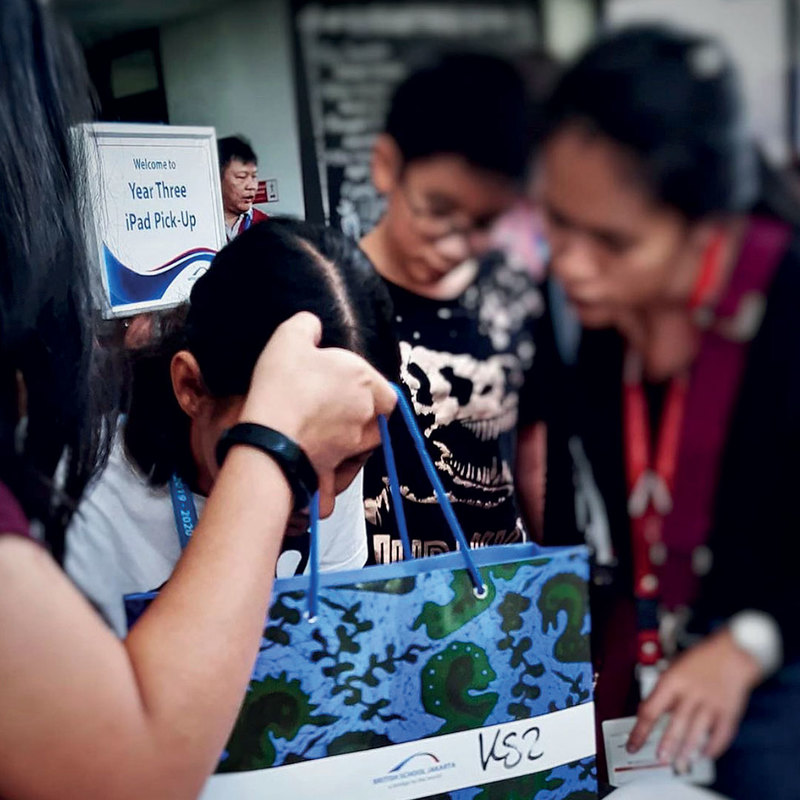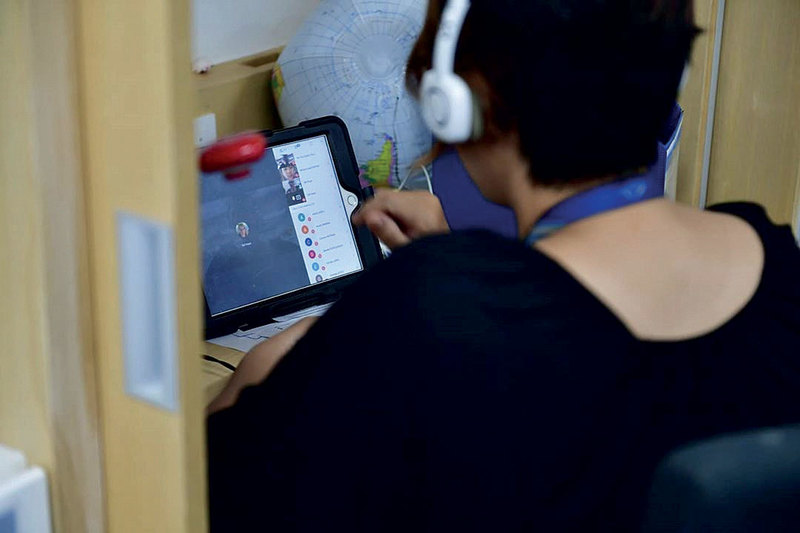
The British School Jakarta readily shifted to an online learning programme in the wake of Covid-19. Here are some important points they made in ensuring a smooth transition for all.
Was BSJ ready for this crisis? In what way were you prepared?
Ready is a good question. Compared to schools in China and Hong Kong, who literally had to switch overnight, our lead in time was certainly longer as we switched to online learning in late March (starting 17 March 2020 for Secondary School and 18 March 2020 for the Primary School).
We also stayed open for as long as possible in terms of health and safety and governmental notifications. School was officially closed for visitors on 16 March 2020, but the next two days after, students could enter the campus only to collect items that are necessary for online learning and then return home.
So, yes our prep time enabled our leadership and teachers to be in a strong position to switch to online. As it got closer to the actual day, I remember we had around 170 primary parents in one of our gyms with devices learning about online, which was hugely beneficial to the process. In Secondary, information was sent out to parents explaining how the Online Learning would work. We have run a number of parent sessions online since the Online Learning has started to give information and to support any parental questions.
How challenging was it to transfer the whole teaching and learning process to home?
The challenge was stepping into a new teaching and learning environment and what that would actually entail. We made a conscious decision early on to quartile our approach: Kindergarten was age specific and the Kindergarten teachers are literally and quite brilliantly replicating their phonics lessons in a virtual setting. The structure that we set up for Primary included ‘virtual pods’ so support teachers and teacher assistants (TA’s) could take students out of the mainstream online lesson to work with them one-to-one. We made minor alterations to the timetable to enable specialist lessons to occur in the afternoon, which has proven to be successful.
In Secondary, we divided it into our The International Baccalaureate Middle Years Programme teaching (Year 7 – 9) and then the curriculum and exam classes (General Certificate of Secondary Education & International Baccalaureate). We have been agile and adapted to our teaching in an online capacity to meet the needs of all students and their studies. The International Baccalaureate Middle Years Programme is inquiry based teaching and learning so we can really get the students to work on inquiring through project based material and the teacher guides the students. With the exam classes, we have adopted blended learning, which is a combination of synchronous and asynchronous teaching; the students meet the teacher online at regular intervals and also fulfil tasks that are curriculum based at the same time.
How are the teachers coping? Do they all work from home?
We are very fortunate at BSJ to have a committed and experienced leadership and teaching faculty who have risen to this challenge. We talk a great deal at BSJ about Duty of Care and what that really means for us to all our community. For staff, we make sure that there is literally daily communication when we are in session from me and then ‘catch up’ and ‘check in sessions’ with colleagues and senior members of staff to ensure that their wellbeing is being addressed. The BSJ campus is closed for teaching and we have a small number of operational staff on campus to ensure that everything is in order.

Are there different lessons in home teaching or are they just on line?
A good question! One of the words that we use at BSJ is pioneering and we are fortunate that we can continue our pioneering in an online environment. In the Secondary school, we have a 30 minute wellbeing lesson, so we are able to have virtual assemblies in that time. Our Compassionate Systems work from Massachusetts Institute of Technology (MIT) with our students can continue and they are collaborating with students in Denmark and the USA. If ever there was a time for Compassionate Systems, it is now!
How are assessments done? Is there any downside for the pupils?
Assessment is key and again we are working on this as age appropriate and curriculum appropriate that has input from the Leadership Teams, Head of Faculties, teachers and students. It is very much work in progress and we are lucky in that many of our students have already experienced assessments in a tech setting and this gives them adaptability to deal with any new situation. In sections of the school where it is curriculum based, the teaching, learning and assessment is all factored into the unit of teaching, so that it can be completed/uploaded to the member of staff. By having virtual pods, a teacher can also give one-to-one feedback to a student.
Text by David Butcher, Principal of British School Jakarta
British School Jakarta
Bintaro Jaya Sektor 9
Jalan Raya Jombang – Ciledug, Pondok Aren
Tangerang 15427, Jakarta
T: +62 21 745 1670
IG: @britishschooljkt
FB: @BritishSchoolJakarta
www.bsj.sch.id






